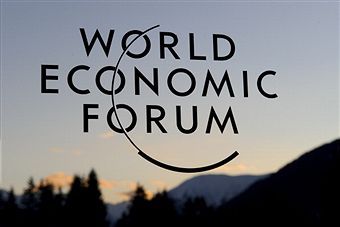 What’s the point of Davos? This is a question seldom addressed in the reports filed
from the five-day “World Economic Forum” which ended on Sunday. Many speeches are made, many issues debated, but it is not a place where decisions are taken. It is not a G20. Manifestos are not
launched there. It exists to serve a very particular function: every year for a short period of time it becomes the temporary capital of the globalised world. Top business and political leaders,
distinguished academics and journalists – all committed to improving the state of the world – flock there to meet each other, swap ideas and then go home.
What’s the point of Davos? This is a question seldom addressed in the reports filed
from the five-day “World Economic Forum” which ended on Sunday. Many speeches are made, many issues debated, but it is not a place where decisions are taken. It is not a G20. Manifestos are not
launched there. It exists to serve a very particular function: every year for a short period of time it becomes the temporary capital of the globalised world. Top business and political leaders,
distinguished academics and journalists – all committed to improving the state of the world – flock there to meet each other, swap ideas and then go home.
This year, I went along for my first visit – and I promised to file my own report for CoffeeHouse on what I made of it.
A good example of how it works was when I bumped into Tony Blair and I wasn’t surprised. This is the point of Davos. It is the sort of place, perhaps the only place in the world, where you can bump
into Tony Blair. ‘What are you doing here?’ he asked me. I asked the same of him. Davos, he said, was just the most convenient of places to meet all the people you needed to see. ‘I’m here to talk
to the Indonesian PM, otherwise I’d have to go to Indonesia.’
This was a pretty good reason. Davos is as much an opportunity for bilateral meetings, often organised weeks in advance, as it is a typical networking event. Though the world leaders all around you
made it in many ways a networkers’ dream it was networking at its most intense, most concentrated, most unrelenting.
Inevitably, I think, with more stars here than there are in heaven, it was very hierarchical. The badge you are given to wear is of the utmost importance and places you at a glance, not only by the
colour, but by how it is worn. The long Belvedere hotel ribbon round your neck marks you as someone only allowed to enter the hotels, not the Forum itself in the Congress Centre – for that
privilege your badge must hang from a plain short cord.
Receptions and parties tend to be exclusive. Google, whose invitations were the most prized, had a tightly controlled system where you had to swipe your badge at the entrance. If the machine didn’t
find your name on the list you were ruthlessly turned away.
Amid all the discussion of economic matters by the ‘haves’ of this world there were some highly contrasting events. I signed up for the ‘Refugee Run’. In a specially created simulation I was told
to consider myself one of the world’s 40 million refugees, a married woman with seven children and a heart condition whose only assets were my jewellery. Darkness, flashing lights, gunfire,
soldiers pushing, shoving, shouting – and as a woman I was not allowed to answer them. When we heard the words ‘simulation finished’ I think the whole group was relieved, but it was a powerful
reminder that for so many the ordeal was real, definitely not finished.
The talks and debates I attended really were first rate. It was like an Edinburgh Festival of global policy ideas, or a mixture of all the UK party conferences put together. The problem with
Davos is that there is just too much. Many people said how sorry they were having to choose between so many good events all held at the same time. You always feel the session you missed must have
been the best.
Davos is undeniably fascinating. It is much more than a networkers’ dream: not a matter of handing over business cards, rather an exchange of ideas and solutions – a meeting of minds. All that
brain power concentrated for those few days on the world’s big problems. In my experience there is nothing quite like it, anywhere. Davos takes you away from the everyday, encourages you to think,
to take stock of important ideas. I’m exhausted, but so glad I was there.






Comments